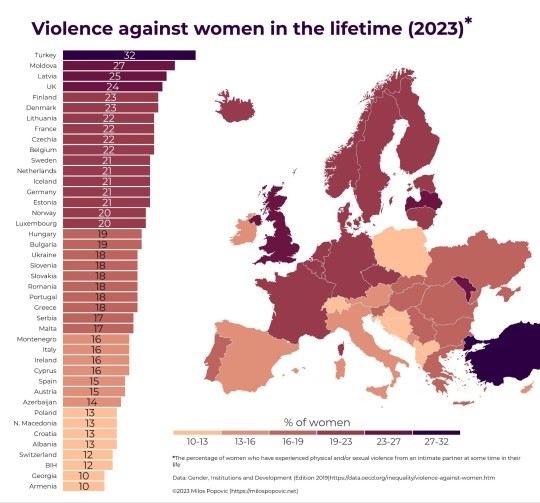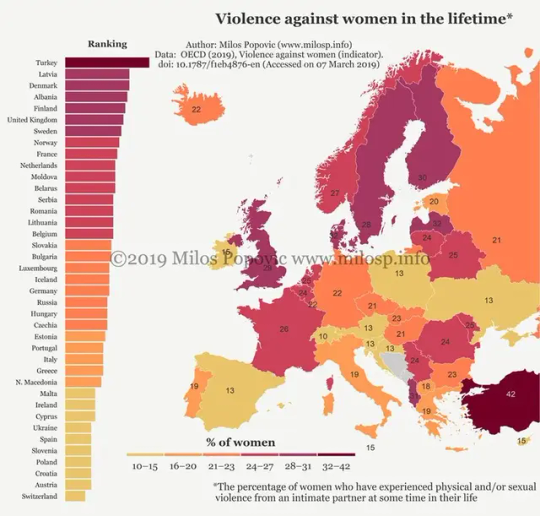#UK education system
Explore tagged Tumblr posts
Text
As someone who spent the entirety of my secondary school years in special ed, I am tired of not being able to relate to others on the topic of "universal" british secondary school experiences.
So in attempt to combat feeling left out, I have come up with my own list of quintessential secondary school experiences.
2009-2014 british special ed secondary school culture is:
Weekly spelling tests. Every year.
Teachers assuming we would all be too clueless to figure out that every staff computer password was literally set to "password".
Sex education not technically being abstinence only, but still lowkey encouraging it by primarily focusing on the negative consequences of engaging in sexual activity, such as STIs and unwanted pregnancy.
Strict dress codes being easy to enforce when the total number of students was small enough for everyone to be noticed individually.
Feeling nervous (due to stigma) whenever someone you perceived as normal would ask you what school you went to.
Every student in the entire school having to appear on stage at least once for the Christmas production each year.
Missing out on the classic "you can achieve anything if you just work hard" speech. Some kids were even told that they would never achieve their dream jobs.
That one teacher (or teaching assistant) who openly disliked you.
Due to it being a male dominant environment, the most popular girls were usually "one of the guys".
Academic performance levels that would be considered failing grades in mainstream education actually being praised as high achievements when only slightly below average. (A personal example would be me getting a D in maths)
Those pencil packs with "100% Attendance" written on them being given as a reward at the end of each term to those who showed up every day. I would like to thank my strict mum for helping me win those pencils almost every term.
No PDA between couples allowed, not even hugging. (Although in my case they did eventually update this rule to allow holding hands as the exception)
A noticeable lack of sympathy from many teachers whenever someone had an emotional outburst in a situation that was actually distressing for them.
Years 7 and 8 still feeling like an extension of primary school.
The representation you lacked in fiction being made up for in documentaries your parents watched.
Everyone knowing everyone like they do in small villages.
Social skills classes taught with the implication that the objectively correct way to communicate is the neurotypical way.
Either getting pathologised for finding something difficult or told to stop making excuses. No in-between.
Those who were considered "high functioning" often trying to distance themselves from those who were more severely disabled. Despite not actually being very high functioning myself, I was still guilty of doing this multiple times and for that I am sorry.
#feel free to add your own in the replies/reblogs.#I only made it UK specific because I know the education system varies depending on the country#and most other posts I see about special ed tend to be more specific to the US education system#as well as being more about primary/elementary school than secondary/middle/high school.#actuallyspecialed#special education#special ed#sped#mentally disabled#developmentally disabled#neurodivergent#learning disabilities#late 2000s#early 2010s#uk education system#secondary school#ableism#disability#zillennial#early gen z#SEN#infantilization#visibly disabled#early diagnosis#higher support needs#cognitive disability
5 notes
·
View notes
Text
Why Choose Short Courses in the UK? Benefits for International Students
When it comes to enhancing your skills and expanding your global perspective, the UK is a top destination for international students. Whether you want to improve your career prospects or explore a new field, short courses provide the perfect opportunity to do so without the long-term commitment of a degree. For more details on this, check out short courses for international students in UK to explore some exciting options.
What Are Short Courses?
Short courses are compact, skill-focused programs designed to help students gain specialized knowledge in a short amount of time. Ranging from a few weeks to a few months, these courses are often highly focused on specific topics, making them ideal for professionals and students alike.
Benefits of Short Courses in the UK

1. Affordability Without Compromising Quality
One of the most appealing aspects of short courses is their affordability. Compared to full-time degree programs, these courses are significantly less expensive, allowing students to gain world-class education without financial strain.
2. Flexibility to Suit Your Schedule
Short courses are tailored to fit the schedules of busy professionals and students. Whether offered online or in-person, they provide the freedom to study at your own pace or attend immersive weekend or evening sessions. This flexibility is particularly helpful for international students juggling studies and other responsibilities.
3. Networking Opportunities with Global Peers
The UK attracts a vibrant international student community. Enrolling in short courses allows you to connect with peers from all over the world. Networking in such a diverse environment opens up avenues for global collaborations, lifelong friendships, and exposure to new ideas.
4. Career Boost Through Specialized Learning
Short courses often focus on niche or emerging fields, equipping you with the specialized knowledge that employers value. Whether you're looking to upskill in data analytics, marketing, or creative arts, the UK offers a wide range of programs tailored to meet market demands.
5. A Taste of British Culture
For international students, short courses in the UK offer a cultural immersion experience. You can explore historic cities, try iconic British cuisine, and experience life in one of the world's most vibrant educational hubs—all while attending your program.
Popular Fields for Short Courses in the UK
Business and Management: Perfect for budding entrepreneurs and managers.
Creative Arts and Design: Ideal for creative minds exploring filmmaking, fashion, or photography.
Technology and IT: Courses in coding, cybersecurity, and AI are increasingly popular.
Language Studies: Improve your English or learn another global language.
Why Choose the UK for Short Courses?
The UK has a reputation for delivering some of the best educational experiences globally. With world-class institutions, industry-linked programs, and highly experienced faculty, it’s no surprise that students from all over the world flock to the UK for short-term studies.
For more information and options, you can explore short courses for international students in UK to find programs that fit your goals.

How to Apply for Short Courses in the UK
Research the Course: Choose a program that aligns with your career goals.
Meet the Requirements: Ensure you meet academic or language prerequisites.
Prepare Financial Documents: Have proof of funds ready.
Apply for a Visa (if required): Many short courses require a short-term study visa.
Conclusion
Short courses in the UK are a fantastic way for international students to gain new skills, experience British culture, and broaden their horizons without committing to a full degree program. Affordable, flexible, and rich in networking opportunities, these courses are a gateway to personal and professional growth.
So why wait? Dive into the world of short courses for international students in UK and start your journey today!
#Short courses for international students#Study in the UK#Benefits of UK short courses#Affordable short courses UK#Networking opportunities in UK education#Flexible study options UK#UK short-term programs#Career boost through UK courses#Specialized learning in the UK#UK cultural immersion through studies#Best short courses in the UK#International student opportunities UK#UK education system#Short-term study visa UK#Upskilling for professionals UK
0 notes
Text
Time Blocking- Effective Study technique for Students!
Are you struggling to manage your study time effectively? Consider using the time-blocking technique, a proven method to help you allocate specific blocks of time to different subjects or tasks. This structured approach ensures that each subject receives the attention it deserves, helping you build a more organized and effective study routine.
At Quick Assignment Help, we encourage students to adopt smart study techniques like time blocking to enhance productivity and reduce stress. Let's help you stay on top of your academic responsibilities!
For personalized assistance with your assignments and study strategies, reach out to us anytime. +44 7393 151732 +44 020 86386878
#university#college#assignment help#assignment services#assignmenthelp#assignmentwriting#homeworkhelp#academia#100 days of productivity#students#dissertation uk#best assignment help uk#uk#uk education system#uk education#united kingdom#london
0 notes
Text
Comprehensive Guide to Studying in the UK from Nepal: Your Path to Academic Success
Embark on an exciting academic journey by studying in the UK from Nepal. The UK offers world-renowned universities, diverse cultural experiences, and excellent career opportunities. Our comprehensive guide covers everything you need to know, from choosing the right university and meeting admission requirements to securing financial aid and obtaining a student visa.
With firsthand insights from UK graduates, our experienced counselors provide personalized advice and support throughout your application process. Learn about top UK universities, post-study work visas, and practical tips for adapting to life in the UK.
For more detailed information and to start planning your study abroad adventure, click on the link to explore the full guide on studying in the UK from Nepal.
#studying in UK from Nepal#Nepali students in UK#UK university application#UK student visa process#study abroad guide#UK scholarships for Nepali students#adapting to life in UK#UK education system#international student tips#post-study work visa UK
0 notes
Text
سیستم آموزشی بریتانیا: مروری جامع

معرفی
بریتانیا دارای یک سیستم آموزشی غنی و متنوع است که به دلیل کیفیت و اهمیت تاریخی خود شناخته شده است. سیستم آموزشی بریتانیا با سنت دیرینه تعالی دانشگاهی و تعهد به تقویت رشد فکری، طی سالها تکامل یافته است تا نیازهای یک جامعه مدرن و جهانی شده را برآورده کند.
ساختار سیستم آموزشی انگلستان
این سیستم آموزشی انگلستان به چندین مرحله کلیدی تقسیم می شود که هر کدام اهداف و برنامه درسی خاص خود را دارند. این مراحل به شرح زیر است:
مرحله اولیه سالهای اولیه (EYFS): EYFS برای کودکان 3 تا 5 ساله طراحی شده است و بر ایجاد یک پایه محکم برای یادگیری آینده متمرکز است. این بر یادگیری مبتنی بر بازی، رشد اجتماعی، و مهارتهای اساسی حساب و سواد تأکید دارد.
آموزش ابتدایی: آموزش ابتدایی در انگلستان معمولاً کودکان 5 تا 11 ساله را پوشش می دهد و شامل مراحل کلیدی 1 و 2 است. در این مرحله دانش آموزان با طیف وسیعی از موضوعات از جمله ریاضیات، انگلیسی، علوم و هنر آشنا می شوند. مرحله کلیدی 2 با آزمون های SAT (آزمون های ارزیابی استاندارد)، که پیشرفت دانش آموز را در این موضوعات اصلی ارزیابی می کند، به اوج خود می رسد.
آموزش متوسطه: آموزش متوسطه شامل مراحل کلیدی 3 و 4 است و برای دانش آموزان 11 تا 16 ساله است. مرحله کلیدی 3 ادامه برنامه درسی ابتدایی با طیف وسیع تری از موضوعات است. در پایان مرحله کلیدی 4، دانش آموزان معمولاً در امتحانات گواهی عمومی آموزش متوسطه (GCSE) شرکت می کنند.
تحصیلات پس از 16 سالگی: پس از تکمیل GCSE، دانش آموزان می توانند با ورود به کالج یا فرم ششم، ادامه تحصیل خود را انتخاب کنند، جایی که به مدت دو سال تحصیل کرده و در آزمون های سطح پیشرفته (A-Level) شرکت خواهند کرد. از طرف دیگر، دانش آموزان می توانند دوره های حرفه ای یا کارآموزی را انتخاب کنند.
آموزش عالی: تحصیلات عالی در بریتانیا در دانشگاه ها و کالج ها ارائه می شود و معمولاً یک برنامه سه ساله در مقطع کارشناسی است که منجر به اخذ مدرک لیسانس می شود. گزینه های تحصیلات تکمیلی شامل برنامه های کارشناسی ارشد و دکترا است. بریتانیا به دلیل دانشگاه های معتبر و ارائه آموزش عالی با کیفیت بالا مشهور است.
ویژگی های کلیدی سیستم آموزشی انگلستان
تست استاندارد: سیستم آموزشی انگلستان برای سنجش پیشرفت و پیشرفت دانشآموزان بر آزمونهای استاندارد متکی است. شناخته شده ترین آزمون های استاندارد شده آزمون های SAT در پایان مرحله کلیدی 2 و آزمون های GCSE در پایان مرحله کلیدی 4 هستند. این آزمون ها نقش بسزایی در ارزیابی توانایی های تحصیلی دانش آموزان و تعیین مسیرهای آموزشی آینده آنها دارند.
لباس فرم مدرسه: لباس فرم یک ویژگی رایج در مدارس انگلستان است. آنها نه تنها احساس تعلق و برابری را در بین دانش آموزان ترویج می کنند، بلکه به یک محیط یادگیری مثبت نیز کمک می کنند. لباس فرم مدرسه اغلب مختص هر موسسه است و ممکن است شامل کتانی، کراوات و تاج مدرسه باشد.
شرایط مدرسه و تعطیلات: سال تحصیلی در انگلستان به طور معمول به سه ترم پاییز، بهار و تابستان تقسیم می شود. مدارس در طول این ترم ها تعطیلات منظم دارند، از جمله تعطیلات نیم ترم و تعطیلات تابستانی طولانی. این استراحت ها امکان استراحت و تفریح را هم برای دانش آموزان و هم برای معلمان فراهم می کند.
مدارس خصوصی و دولتی: سیستم آموزشی انگلستان بین مدارس دولتی و مدارس خصوصی (مستقل) انتخابی را ارائه می دهد. مدارس دولتی توسط دولت تامین مالی می شوند و به برنامه درسی ملی پایبند هستند، در حالی که مدارس خصوصی دارای استقلال بیشتری هستند و اغلب طیف وسیع تری از فعالیت های فوق برنامه را ارائه می دهند.
اهمیت فعالیت های فوق برنامه: فعالیت های فوق برنامه نقش مهمی در سیستم آموزشی انگلستان دارد. مدارس دانش آموزان را به شرکت در فعالیت های ورزشی، باشگاهی و فرهنگی تشویق می کنند. این تجربیات به دانش آموزان کمک می کند تا طیف گسترده ای از مهارت ها و ویژگی ها، از جمله کار تیمی، رهبری و آگاهی فرهنگی را توسعه دهند.
آموزش فراگیر: آموزش فراگیر یک اصل اساسی در سیستم آموزشی انگلستان است. هدف مدارس حمایت از دانشآموزان دارای نیازهای آموزشی خاص و ناتوانیها برای اطمینان از دریافت آموزش برابر و باکیفیت است. هماهنگکنندگان نیازهای آموزشی ویژه (SENCOs) با دانشآموزان، والدین و معلمان همکاری نزدیکی دارند تا حمایت لازم را تسهیل کنند.
برنامه درسی متنوع: برنامه درسی در انگلستان متنوع است و شامل طیف گسترده ای از موضوعات مانند ریاضیات، علوم، انگلیسی، تاریخ، جغرافیا، زبان ها و هنر است. این رویکرد جامع تضمین می کند که دانش آموزان به یک آموزش جامع دسترسی دارند.
چالش ها و اصلاحات
در حالی که سیستم آموزشی بریتانیا بسیار مورد توجه است، با چالش ها و اصلاحات مداوم روبرو است. این چالش ها عبارتند از:
نابرابری آموزشی: شکاف مداومی در نتایج آموزشی بین دانشآموزان با زمینههای مختلف اجتماعی-اقتصادی وجود دارد. تلاشهایی برای رفع این نابرابری از طریق طرحهایی مانند حق بیمه دانشآموزان صورت گرفته است که بودجه بیشتری را برای مدارس دارای دانشآموزان محروم فراهم میکند.
کمبود معلم: بریتانیا در سال های اخیر با کمبود معلمان واجد شرایط مواجه بوده است، به ویژه در دروسی مانند ریاضیات، علوم و زبان های خارجی. این موضوع باعث نگرانی هایی در مورد کیفیت آموزش در این مناطق شده است.
بازنگری برنامه درسی: برنامه درسی در انگلستان در سال های اخیر با تغییراتی در محتوا و ساختار GCSEs و A-Levels دستخوش بازنگری های متعددی شده است. این تجدید نظرها با هدف همسویی سیستم آموزشی با نیازهای نیروی کار مدرن و چالش های جهانی انجام می شود.
شهریه دانشگاه: شهریه دانشگاه موضوع بحث و مناقشه بوده است. در سال 2012، هزینه های برنامه های کارشناسی در انگلستان به طور قابل توجهی افزایش یافت، که منجر به نگرانی در مورد دسترسی به آموزش عالی برای دانشجویان با پیشینه های کم درآمد شد.
نتیجه
سیستم آموزشی بریتانیا به دلیل تاریخ غنی، تست استاندارد و تعهد به ارائه آموزش با کیفیت بالا شناخته شده است. از سال های اولیه تا آموزش عالی، این سیستم برای آماده سازی دانشجویان برای آینده ای موفق طراحی شده است. در حالی که بریتانیا با چالشهای مربوط به نابرابری، کمبود معلم و اصلاحات در برنامههای درسی مواجه است، آموزش را به عنوان یک ستون اساسی جامعه خود در اولویت قرار میدهد و دانش، مهارتها و رشد شخصی دانشآموزان را در سراسر کشور تقویت میکند. لطفا به اینجا مراجعه کنیدسیستم آموزشی انگلستان برای اطلاعات بیشتر.
#سیستم آموزشی انگلستان#تحصیل در انگلستان#ویزاهای تحصیلی انگلستان#مدارک مورد نیاز جهت اخذ ویزای تحصیلی انگلستان#مقاطع تحصیلی در انگلستان#دانشگاههای برتر انگلستان#هزینههای تحصیل در انگلستان#هزینههای زندگی دانشجویی در انگلستان#UK education system#Study in England#UK study visas#Documents required to obtain a UK study visa#Degrees in England#Top universities in England#Costs of studying in England#Student living costs in the UK
0 notes
Text
Top UK Universities for Indian Students: A Comprehensive Guide For Indian students seeking to broaden their horizons and pursue higher education abroad, the United Kingdom stands as an attractive destination. The UK is home to numerous prestigious universities, each offering a unique academic experience. In this comprehensive guide, we will delve into some of the most popular universities in the UK for Indian students.
#UK universities#Indian students in UK#Study abroad UK#University of Edinburgh#University of London#Middlesex University#Leeds Beckett University#Swansea University#Higher education UK#Study in the UK#International students UK#Education abroad#UK university rankings#UK education system#Overseas education#Academic opportunities UK
0 notes
Text
"Ballistic markings are the fingerprints of a gun" is to the Ace Attorney universe what "the mitochondria is the powerhouse of a cell" is to the American education system
#I say the american education system because they never taught mitochondria to us like that in the uk#ace attorney#ace attorney investigations#phoenix wright#widget posts
562 notes
·
View notes
Text

wasn't really in the mood to draw anything tonight, BUT I DIDDDD write Chariot's military personnel file the entire day lmao!!!
template made by mistydeyes!
#spent the most of tonight trying to understand UK education system like????????????????#will probably tweak this out more in the future but i like how it looks rn!!#my art#2024#my ocs#oc#cod#cod oc#call of duty oc#call of duty#art#original character#original characters#ocs#template#chariot oc#mila eastaughffe#character design#character concept#tim rambles
209 notes
·
View notes
Text
The fact that 70% is a C- in the USA boggles my mind. Now, grading varies provincially but where I grew up (in Ontario, Canada) 70-79 was B range and 80+ was A range. So the fact that y'all can get 70 per cent in something - which means you understood most of something - counts as barely passing is ludicrous to me. 50 per cent is the passing threshold here. 70-my ass, no wonder there's so many jokes about how fucked the education system is there.
#based on another post i read about someone describing 70% as C- and i was like woah that is a solid B- in Canada my dude#personal#us education system#american education#i am not american#i think in some places in the UK the threshold to pass is 40 per cent. that's less than half. america is insane
11 notes
·
View notes
Text

This feels important with everything my parents - although I disagree with them on many counts, they are both teachers - have been saying recently, and what I and my siblings have grown up with. Not all schools are the same obviously, but the school I went to seemed designed to grind me into the perfect obedient student. And it did. They told me in year eight that I was "stuck in the past" and "needed to move on" - because, as I gather, they got sick of me reporting it and having to deal with it - and after that, I gave up reporting it. In refusing to deal with other students who were bullying me - one of many things they did - I became so severely depressed that I WAS quiet and obedient, because I was too exhausted to do anything else. Independent, because I knew I couldn't rely on anyone else. Hard working, because I couldn't do anything else. When I got ill and needed extra accommodations, not only were those accommodations refused, but rules were put in place to actively make my life harder, and the lives of any who came after me, all for the sake of attendance records. And any time the pressure of all this made me lash out, they'd call home and tell them to deal with it. Which they did. By screaming at me.
The system is broken. If we're ever going to have a working education system then that system needs to be based on kindness. It needs to centre around children as people, not as grades and percentages. And we need to destroy the idea that children are "too sensitive". If a child is hurting, HELP THEM. I refuse to allow anyone else to go through what I did, no matter the cost.
Be whimsical. Go to the park. Paint your walls. Rebel against the system.
I'm attaching the link to the post I made about anti-bullying week here because I feel it's still relevant.
#uk politics#uk schools#education system#Yet another result of the Tories#At least Bridget Phillipson seems to actually care about her role
15 notes
·
View notes
Text
The closest I could probably ever get to experiencing "gifted kid burnout" is being considered smart by special ed standards and feeling good about getting onto a level 1 BTEC course at a mainstream college, only to eventually realise that most people who do BTEC courses (which already tend to be viewed as inferior to A levels) go straight to level 3 and that starting at anything below that is often seen as dumb.
#plus I now hate the subject I spent four years studying#I also had to retake maths and english every year#I only just passed maths in my final year which probably wouldn't have been possible without extra time#but I still continued to fail english even with the extra time#...for those outiside the uk: college is not synonymous with university over here#it's basically the final two years of school before university or full time work - typically attended from ages 16-18#but for me it was four years so I didn't leave until I was 20#and after that I had decidedly had enough of school so I didn't bother with university#and I'm still unemployed for multiple reasons#although some would say they all boil down to laziness#which is at least one reason to be fair.#special ed#special education#sped#actuallyspecialed#former special ed kid#mentally disabled#developmentally disabled#neurodivergent#unemployed#uk education system#btech#bad grades#dumbass
1 note
·
View note
Text

Visit more
#gif#uk#usa#artists on tumblr#australia#germany#united arab emirates#canada#denmark#questions#writers on tumlr#educate yourself#book review#tumblr polls#new york#uhc ceo#ceo information#cats of tumblr#10 posts#mario and luigi#us health system#drug#gaming#breaking news#japan#hugh jackman#glasses#accounting#jay z#black entrepreneurship
3 notes
·
View notes
Text
Attention, UK students!
Are you struggling with your assignments? We've got your back! At Quick Assignment Help, we’re offering a 20% discount on all assignment writing services.
Whether it’s essays, dissertations, or research papers, our team of expert writers is here to ensure you get top grades with high-quality, plagiarism-free content. Don’t miss out on this limited-time deal!
Why Choose Quick Assignment Help?
- Professional Writers with UK Academic Expertise
- 100% Original Content Guaranteed
- Timely Delivery, Even on Tight Deadlines
- Affordable Prices with No Hidden Charges
Take advantage of this amazing discount and ace your assignments with ease! Visit our website or contact us directly via WhatsApp to get started.
+44 7393 151732
+44 020 86386878

#assignment help#assignment services#assignmenthelp#assignmentwriting#homeworkhelp#academia#university#college#students#dissertation uk#dissertation writing#dissertation help#dissertation#discount#best assignment help uk#uk education consultants#uk education system#uk education#united kingdom
0 notes
Note
critical thinking is taught in literature and/or philosophy classes you're just usamerican
king i think you might be the one lacking reading comprehension skills i'm a philosophy undergrad, i was raised in iran, i live in the UK where we ARE taught to think critically, have never once been to the usa, and i'm talking from my own perspective as an asian person combined w that of all my peers from diff asian countries who all have had the same experience/perspective on this . if you read the tags on that post i say clearly that i'm iranian :)
#asks#anon#im sorry being called USAmerican was not on my bingo card this is so funnyyyyy#in a lot of asian countries our systems of education are based on memorisation rather than actually analysing and dissecting and THINKING#in farsi literature class i had to just memorise/recite old poetry etc. my friend who went to school in hong kong#says the same . my indian friend had a similar experience. in maths we just learned formulae or processes for answering questions#algorithmically. once i moved to the uk i was baffled and pleasantly surprised that A) i didnt have to work like 6-8hrs on homework every#day and B) that we were told WHY things were the case as well as the fact that they are. if we asked why we got an answer.#i think u may be deeply ignorant on this anon ngl
14 notes
·
View notes
Text



what's incredible about these maps is how hard western euros will cope at the idea that their enlightened and superior society could ever be worse than *flips through notebook* those uncivilized lesser slavic poles and ukrainians. russians and croats also are lying too.



what's funny is that this yearly EU study is conducted in such a way that literally accounts for bias in reporting and cultural stigma, yet still they will cope and are unable to consider that based social democrat scandinavian finns beat their wives more than poles
(don't look at spousal murder rates in scandinavia ha ha)
#it's not surprising to me at all#this is the same way they get miffed at the fact that eastern euros have far better representation of women in higher fields of work#like healthcare and academia#uhhh it can't be those filthy communists or cultural differences uhh it's#yeah fake data look they're not as developed as our fields does it count???#or how miffed and pissed they got when ukrainian refugees in the UK said the healthcare system there is completely dysfunctional compared#to ukraine#NO!!! ungrateful untermensch!!!#it must be lesser quality!!! (it isn't and is sometimes better)#like the four things the communist excelled at was 1) housing 2) healthcare 3) public transport 4) education#why is this a surprise#txt#btw wth is going on with latvia#no. 2 wife beaters after turkey
12 notes
·
View notes
Text
What is GCSE?
The General Certificate of Secondary Education (GCSE) is an academic qualification in the United Kingdom, typically taken by students at the end of their compulsory education, around the age of 16. Introduced in the late 1980s, GCSEs replaced the former O-Level qualifications and are now a cornerstone of the UK education system.

Structure and Subjects
GCSEs are available in a wide range of subjects, allowing students to tailor their education to their interests and future aspirations. Core subjects typically include English Language, English Literature, Mathematics, and Science. In addition, students can choose from a variety of optional subjects such as History, Geography, Modern Languages, Art, Music, and Design Technology, among others.
Students usually undertake GCSEs in Year 11, although some may start studying for them in Year 10. Each subject is assessed through a combination of coursework and examinations, with the latter being the primary mode of assessment for most subjects.
Grading System
The GCSE grading system has undergone changes in recent years, transitioning from letter grades (A* to G) to a numerical system (9 to 1), with 9 being the highest. This new system aims to provide a more differentiated measure of student performance, reflecting the increasing demands of the curriculum.
Importance of GCSEs
GCSEs play a significant role in a student's educational journey. The results can influence future educational and career opportunities, as they are often prerequisites for further study in sixth forms, colleges, or vocational training. A good set of GCSE results can open doors to A-Level courses, apprenticeships, and higher education.
#GCSE#gcse student#english literature#a level#UK#education#online courses#online tuition#student#education system#mathematics#english#grammar#science#biology#economics
2 notes
·
View notes